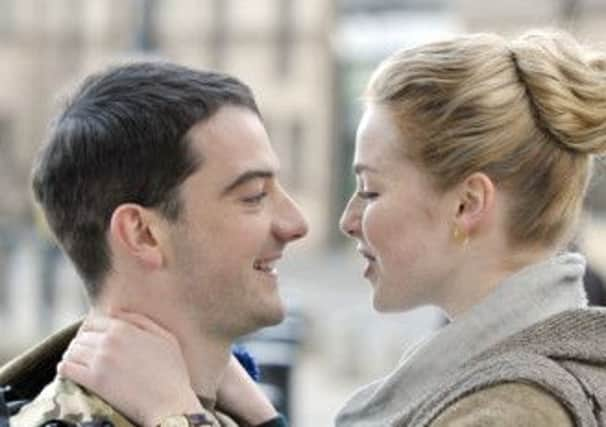Andrew Eaton-Lewis: Proclaimers film sparks debate


Emily Mortimer plays a single mum who can’t bear to tell her young son the truth about his dad, so pretends he’s working offshore and secretly answers all her son’s letters to him herself.
There are a few connections to Sunshine On Leith. In both cases the scenario – family trauma in urban working-class Scotland – is something you might expect to see in a Ken Loach film, but it’s given a very different, fantastical treatment. In Sunshine On Leith the fantasy element is that people keep breaking into Proclaimers songs; in Dear Frankie it’s the fairytale quality of the story. Both are not shy about using beautiful scenery, stirring music and a cute kid to melt your heart.
Advertisement
Hide AdAdvertisement
Hide AdDear Frankie got a standing ovation in Cannes but a mixed reception from critics. Like Sunshine On Leith, it’s the kind of film you either find poignant and uplifting or contrived and sentimental.
I remember clearly, though, that its defenders seemed motivated partly by relief: here, at last, was a Scottish film that didn’t seem to be wallowing in misery. This was understandable. Dear Frankie was released two years after Morvern Callar and Sweet Sixteen, and a year after Young Adam. And in the wake of significant earlier releases such as Ratcatcher, Orphans, Breaking The Waves and My Name Is Joe, they represented enough of a pattern to make Scottish miserablism a cinematic cliché.
Nobody is talking about Sunshine On Leith in the same way, and no wonder. Over the past three years, Scotland has been a cinematic backdrop for dreamy romance (One Day), arty science-fiction (Cloud Atlas, Perfect Sense), rural drama (For Those In Peril, Blackbird), zombie takeover (World War Z), car chases (Fast & Furious 6), comedy (The Angels’ Share, Burke & Hare, You Instead), animated stories (The Illusionist, Brave and, if we must, Sir Billi) and more. Coming soon: a self-loathing cop (Filth, see Page 21), a man-eating alien (Under The Skin) and a Second World War drama (The Railway Man).
It’s been said a few times recently that Scotland is enjoying a cinematic boom not seen since the mid-1990s. What’s more striking is the sheer range of stories being told this time. The fact that Sunshine On Leith and Filth are out in the same month sums this up well. It’s difficult to imagine two more radically different depictions of the same Edinburgh streets.
You can gauge a nation’s mental health from the stories it tells about itself. And in saying that, I’m paraphrasing the author Ewan Morrison, who recently wrote an essay arguing that, based on a psychological analysis of its literature, Scotland may be collectively suffering from Borderline Personality Disorder. Symptoms: crushed by a sense of inferiority and injustice, the BPD sufferer dreams of a utopian solution that will fix everything but which is doomed to failure because of their tendency to self-sabotage.
Morrison’s warning is that a country with untreated BPD is a country whose current bid for independence is as doomed to failure as William Wallace, the Darien scheme, or Renton’s attempts to kick heroin in Trainspotting. He points to thematic patterns in the work of Hugh MacDiarmid, Alexander Trocchi, Alasdair Gray, James Kelman and others, and makes a persuasive case (he is, for the record, a Yes supporter).
Assuming for a moment that Morrison is actually on to something, here’s my tuppence worth. Look at the current state of the country’s cinema, and you’ll find, unlike ten years ago, no pattern at all. That, following Morrison’s logic, suggests to me a nation culturally at ease with itself, breezily switching between all manner of stories, confident it can turn its hands to anything.
In Sunshine On Leith our capital city looks more full of life, hope and beauty than it ever has on screen before. I can’t help wondering whether people’s feelings about this film might represent a kind of litmus test of people’s feelings about Scotland in general, and what it therefore means if the film is a big hit. Then again, I could just be getting sentimental. I really liked Dear Frankie too; make of that what you will.
Twitter: @aetonlewis